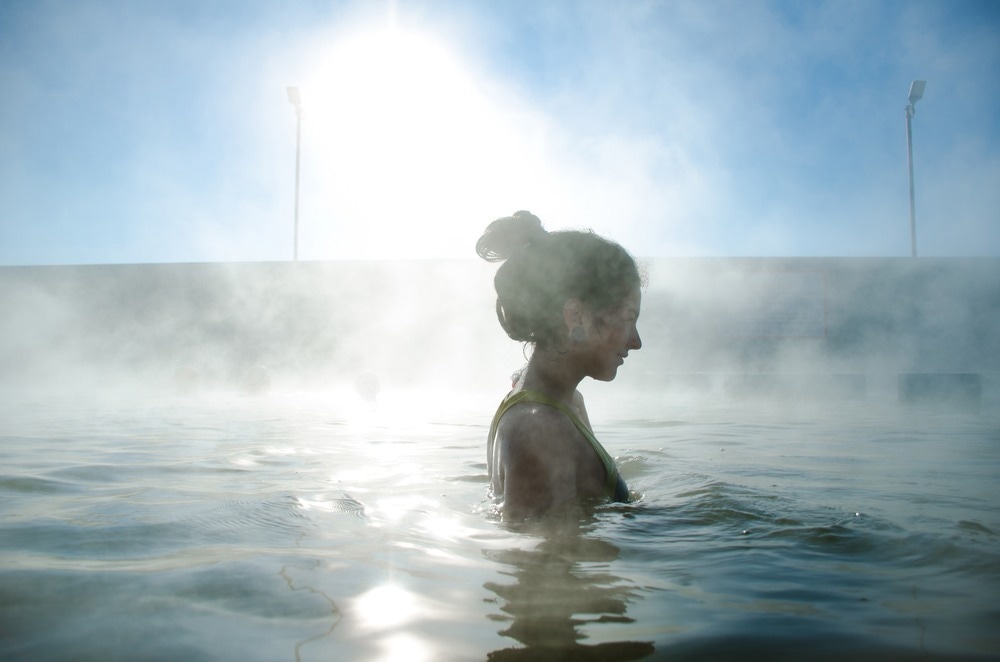[ad_1]
In a current research revealed in Scientific Studies, researchers evaluated the well being advantages of sulfur balneotherapy (sulfur baths) on the rheological properties of the blood of osteoarthritis (OA) sufferers.

Background
OA is a standard situation characterised by irritation and joint ache that may cut back performance and mobility. Regardless of the excessive prevalence of OA, efficient therapies are missing. Sulfur bathing is thought to heal illnesses and has been confirmed efficient in managing varied ailments, particularly musculoskeletal issues. Nonetheless, the therapeutic function of sulfur bathing in osteoarthritis, regarding the hemorheological indices, has not been extensively investigated.
Earlier research have reported that sulfur bathing lowers ache, tonicity, and swelling within the joints, particularly those who consequence from elevated sodium excretion. Balneotherapy can stimulate diuretic mechanisms within the kidneys and enhance joint mobility. As well as, the remedy can enhance kinematics and gait effectivity.
Concerning the research
Within the current research, researchers investigated the possible therapeutic advantages of sulfur bathing amongst osteoarthritis sufferers.
The research included 48 OA sufferers, 24 males and 24 females, aged 60.0 to 80.0 years, who have been divided into two teams, i.e., the intervention group (n=35) and the management group (n=13). The intervention group comprised 18 male and 17 feminine individuals who bathed in sulfur water every day throughout their three-week keep on the Solec Zdrój Well being Resort (SZHR) in Poland.
The management group comprised six male and 7 feminine individuals who didn’t follow sulfur bathing. Blood was drawn from all individuals twice, pre-and post-intervention. All individuals underwent standardized physiotherapy comprising therapeutic massage, kinesiotherapy, laser, and guide remedy. Knowledge have been obtained on participant age, intercourse, and comorbidities similar to acute infections, diabetes mellitus, neoplasms, rheumatological issues, smoking, spondylolisthesis, and urinary incontinence.
People with rheumatologic issues, energetic infections, neoplasms, and smoking habits have been excluded from the evaluation. The workforce evaluated morphological, biochemical, coagulation, and rheological alterations within the blood. Morphological parameters similar to full blood counts (CBC), white blood cell (WBC) counts, pink blood cell (RBC) counts, hemoglobin (HGB), hematocrit (HCT), imply corpuscular quantity (MCV), imply corpuscular HGB (MCH), imply corpuscular HGB focus (MCHC), platelet focus (PLT), platelet distribution width (PDW), differential leukocyte counts have been investigated.
Biochemical and coagulation parameters included high-sensitivity-C reactive protein (hs-CRP), fibrinogen, worldwide normalized ratio (INR), prothrombin time (PT), and activated partial thromboplastin time (APTT). Rheological parameters included erythrocyte aggregation amplitude (AMP), half-time for complete pink blood cell aggregation (T1/2), aggregation index (AI), and elongation index (EI).
Outcomes and dialogue
The common age of the research individuals was 67.0 years. Following sulfur balneotherapy, white blood cell counts, significantly neutrophil counts, have been considerably lowered within the intervention group, indicating that balneotherapy can positively affect persistent low-grade irritation. Erythrocyte elongation indices, which confirm erythrocyte size alterations relative to width when stretched, have been considerably larger following balneotherapy in shear stresses similar to 8.20, 16, 31, and 60 Pa.
Hemoglobin ranges, imply corpuscular hemoglobin (MCH), imply platelet quantity (MPV), and neutrophil focus (NEU) have been considerably altered following balneotherapy. Quite the opposite, the degrees of biochemical and coagulation parameters, together with hs-CRP and fibrinogen, didn’t considerably differ from baseline values. The time required for a half-maximal change within the aggregation sign (T1/2) was considerably larger following the intervention.
Quite the opposite, balneotherapy considerably lowered the diploma of erythrocyte aggregation assessed utilizing the aggregation index (AI). The numerous lower in hemoglobin counts is perhaps relative because of elevated thirstiness following bathing in sulfur water, which may result in overhydration, blood stress fluctuations, and tachycardia.
The exact mechanisms by which sulfur influences hemorheological variables are unknown. Nonetheless, research have reported that hydrogen sulfide (H2S) possesses antioxidant properties since H2S can quench free radicals similar to reactive oxygen species (ROS) that may rework vasculature by damaging vascular cells, rising inflammatory cell recruitment, and rising lipid peroxidation. As well as, H2S can enhance the secretion of antioxidants by way of nuclear issue erythroid 2-related issue 2 (NRF-2) activation.
The optimistic results of sulfur on hemorheological parameters may be linked to endothelial operate and the discharge of nitric oxide, a potent vasodilator with anti-inflammatory results. Nitric oxide secretion from the endothelial lining is regulated by the shear stress on the partitions of blood vessels, ascertained based mostly on the blood viscosity and movement of their peripheral areas.
Conclusion
Primarily based on the research findings, sulfur bathing could enhance erythrocyte deformability and aggregation parameters amongst people with osteoarthritis and decrease neutrophil counts. Nonetheless, the findings for RBC-related parameters could also be underestimated since RBCs survive for 120 days, whereas the intervention interval was three weeks. Additional analysis have to be performed on the results of sulfur bathing utilizing equally sized intervention and management teams and should embrace high quality of life and practical evaluations.
[ad_2]
